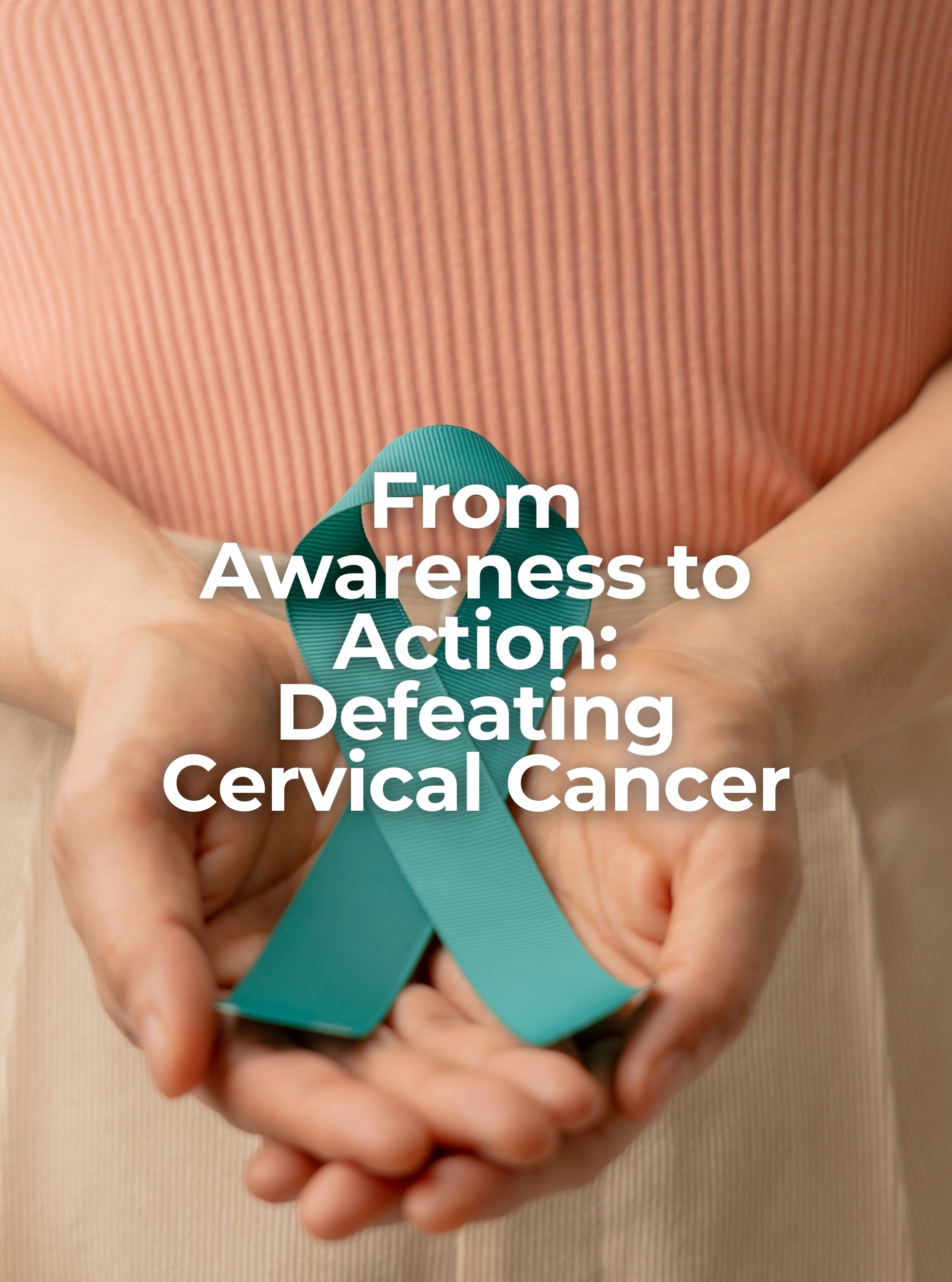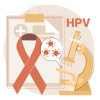


For many women around the world, cervical cancer remains a major health challenge, yet it is also one of the most preventable and treatable cancers when addressed early. With advancements in health screening, vaccination, and treatment, the fight against cervical cancer has made significant progress—but awareness and proactive healthcare remain key to saving lives.
By understanding the risks, recognising early symptoms, and utilising available prevention methods, LifeCare urges women to take steps toward protecting their health. In this blog, we explore how cervical cancer develops, the importance of early detection, and the measures that can help defeat this disease.
Cervical cancer is a type of cancer that occurs in the cells of the cervix, the lower part of the uterus connecting to the vagina. It is a significant health concern for women worldwide but is also one of the most preventable and treatable forms of cancer when detected early.

Nearly all people who are sexually active will become infected with HPV at some point in their lives. Typically, the immune system effectively clears most HPV infections within a year or two. Short-term infections, resolved by the immune system, do not pose a cancer risk.
However, a prolonged high-risk HPV infection can cause alterations in cervical cells, leading to the formation of precancerous lesions. If these lesions go undetected and untreated, there is a potential progression to cervical cancer over time. Thus, HPV vaccination is recommended for females aged 9 to 45 years of age for prevention of cervical cancer caused by certain types of HPV.

Tobacco by-products have been found in the cervical mucus of women who smoke. Researchers believe that these substances damage the DNA of cervix cells and may contribute to the development of cervical cancer. Smoking also makes the immune system less effective in fighting HPV infections.

Women with HIV/AIDS or those taking drugs to suppress their immune response, such as those being treated for an autoimmune disease are at risk of cervical cancer

There is evidence that taking oral contraceptives (OCs) for a long time increases the risk of cancer of the cervix.

Women with three or more full-term pregnancies are at an increased risk of cervical cancer, likely due to heightened exposure to HPV during sexual activity. Hormonal changes in pregnancy may also increase susceptibility to HPV infection or cancer growth. Additionally, weakened immune systems during pregnancy could contribute to HPV infection and cancer development.

Becoming sexually active at a young age especially younger than 18 years old, multiple sexual partners or having one partner who is having HPV infection can increase the risk of cervical cancer due to more exposure with HPV infection
In its early stages, cervical cancer may not exhibit any symptoms. However, as the cancer progresses, women may experience:
Early diagnosis significantly improves the chances of successful treatment. The most common screening method is the Pap smear, where a sample of cervical cells is collected and examined for abnormalities.
Additionally, an HPV test may be conducted to detect the presence of high-risk human papillomavirus, a leading cause of cervical cancer. If abnormalities are identified, a colposcopy is often performed—a procedure to closely examine the cervix.
Further confirmation comes from a biopsy, where a small tissue sample is collected and analysed in a laboratory to determine the presence of cancerous cells.
Cervical cancer is typically staged from 0 to IV, indicating the extent and severity of the disease. Staging helps healthcare professionals determine the most appropriate treatment plan.
The HPV vaccine is a powerful tool in preventing cervical cancer. It protects against the high-risk HPV strains responsible for most cervical cancer cases. Vaccination is recommended for females aged 9 to 45 years. Even if you’ve already been exposed to HPV, the vaccine can still protect against other strains.
Routine Pap smears and HPV tests are essential for early detection. Women aged 21 to 65 should undergo regular health screenings as recommended by their healthcare provider. These tests can identify precancerous changes in cervical cells, allowing for early intervention before cancer develops.
a. Quit Smoking: Smoking increases the risk of cervical cancer by weakening the immune system and damaging cervical cells. Quitting smoking can significantly reduce this risk.
b. Practice Safe Sex: Using protection and limiting the number of sexual partners can reduce exposure to HPV.
c. Strengthen Your Immune System:A healthy diet, regular exercise, and managing stress can boost your immune system, helping it fight off HPV infections more effectively.
If you’ve been using oral contraceptives for an extended period, discuss alternative options with your doctor to reduce your risk.
The treatment for cervical cancer depends on the stage of the disease, overall health, and personal preferences. Here are the most common treatment options:
a. Early-Stage Cancer: Procedures like a cone biopsy (removing a cone-shaped piece of tissue) or a hysterectomy (removing the uterus and cervix) may be recommended.
b. Advanced-Stage Cancer:
Surgery may involve removing nearby lymph nodes or other affected tissues.
High-energy beams are used to destroy cancer cells. It can be used alone or in combination with surgery or chemotherapy, especially for advanced stages.
Medications are used to kill cancer cells or stop their growth. Chemotherapy is often combined with radiation therapy for more effective results.
These advanced treatments focus on specific molecules involved in cancer growth or boost the immune system’s ability to fight cancer. They are often used for recurrent or advanced cervical cancer.
For advanced stages, palliative care focuses on relieving symptoms and improving quality of life. It can be combined with other treatments to provide comprehensive support.
Understanding cervical cancer and taking proactive steps can significantly impact women’s health. Early detection through health screenings is key to identifying potential risk of cervical cancer, and preventive measures are a must.
LifeCare offers several health screening packages for cervical cancer, HPV vaccines and other common illnesses. Stay informed, undergo routine health screenings, and adopt a healthy lifestyle with LifeCare to reduce your risk.



Life Care Diagnostic Medical Centre Sdn. Bhd. 200401034597 (673106-V)
Bangsar South
WhatsApp: 0122343610
1st Floor, Wisma Lifecare,
No. 5, Jalan Kerinchi, Bangsar South,
59200 Kuala Lumpur
Cheras South
WhatsApp: 01127213620
19A-2 & 19B-2, Block E, Kompleks Komersil Akasa,
Jalan Akasa, Akasa Cheras Selatan,
43300 Seri Kembangan, Selangor
Operating Hour:
Monday – Friday: 8.00am – 5.00pm
Saturday: 8.00am – 1.00pm
Sunday & Public Holidays: Closed